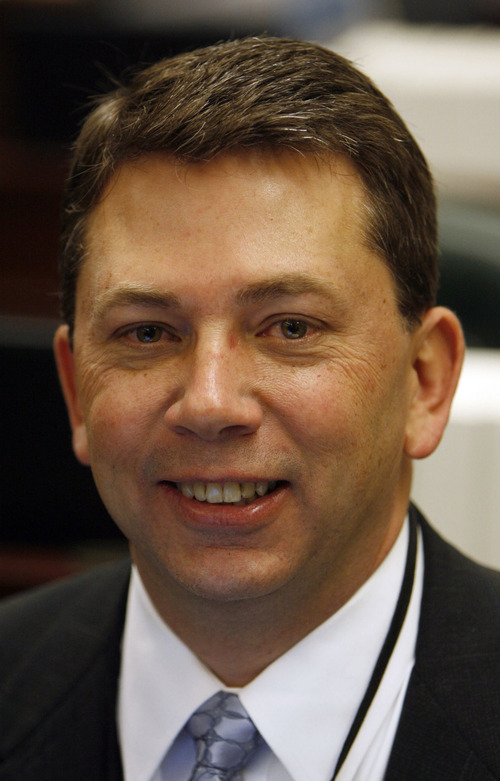This is an archived article that was published on sltrib.com in 2010, and information in the article may be outdated. It is provided only for personal research purposes and may not be reprinted.
Rep. Stephen Sandstrom said his enforcement-only illegal immigration bill is in line with the guiding principles of the Utah Compact — a freshly inked document designed to dial down rhetoric and guide debate in a more civil manner.
But the Orem Republican said he refused to sign the compact because he felt the tone from some of its signers hasn't been civil — notably when Sutherland Institute President Paul Mero, a key drafter of the document, said Sandstrom's bill would be "DOA" when the legislative session starts. The Sutherland Institute is a nonprofit, conservative public policy think tank.
"I'm not going to sign onto something where one of the main pushers on the compact are making statements like that," Sandstrom said. "It gets away from the civil discourse."
Sandstrom said while he doesn't think the compact is a direct attack on his bill, he believes some supporters of the bill are using the compact as a way to derail it before gets to the Capitol.
The Utah Compact has been signed by about 1,300 people since it was unveiled Thursday morning at a ceremony featuring a collection of business leaders, political representatives of both parties and a number of religious groups — including the Catholic Church. The LDS Church didn't sign the compact, but issued a statement in support of its principles shortly after the signing ceremony.
That statement, which Sandstrom characterized on Thursday as a direct shot at his bill, highlighted moral church teachings focused on keeping families together, loving neighbors "in all places, at all times" and acknowledging every nation has the right to enforce its laws and secure its borders.
On Sunday, however, he wrote on his website, "I fully support the statement issued by The Church of Jesus Christ of Latter-day Saints."
The compact's template says the solution to illegal immigration should come from the federal government, that families should not be separated, local law enforcement should focus on crimes instead of immigration enforcement and that the economy is aided by immigrants' contributions.
Sandstrom said his bill is in line with all of those aspects of the compact.
"The basic principles of it, I'm in full agreement and I don't think it conflicts with my bill," he said, noting the law enforcement provision of the compact targets criminal activity.
But the main thrust of his legislation is requiring local law enforcement officers to check the legal residency of persons arrested or pulled over when there is a "reasonable" suspicion they are undocumented.
Mero said he believes Sandstrom "is a reasonable man" but took issue with the representative's characterization that the "DOA" comment about his bill wasn't civil in tone.
"His bill being DOA is a reality because it reflects an Arizona-style approach," Mero said. "Even though they passed it, it's DOA because of the federal government lawsuits."
Marty Carpenter, spokesman for the Salt Lake Chamber of Commerce — one of the entities involved in drafting the compact — said the principles of the compact stand on their own and that anyone is invited to sign it — Sandstrom included.
"We'd love to have all Utahns sign it. It's not the compact versus any one representative or any one bill," Carpenter said. "We just know there will be bills introduced and our hope is they all adhere to those guiding principles."
Sandstrom said he remained committed to carrying his bill forward and said when the compact was released, he received "a lot of support" to press ahead.
"Compassion doesn't mean you ignore the consequences for breaking the law," he said. "I'm pro-immigrant — as long as they come here legally."
The Utah Compact
Composed by community, business and religious leaders, the document is intended as a set of principles to guide a more civil immigration debate. Read it at utahcompact.com



